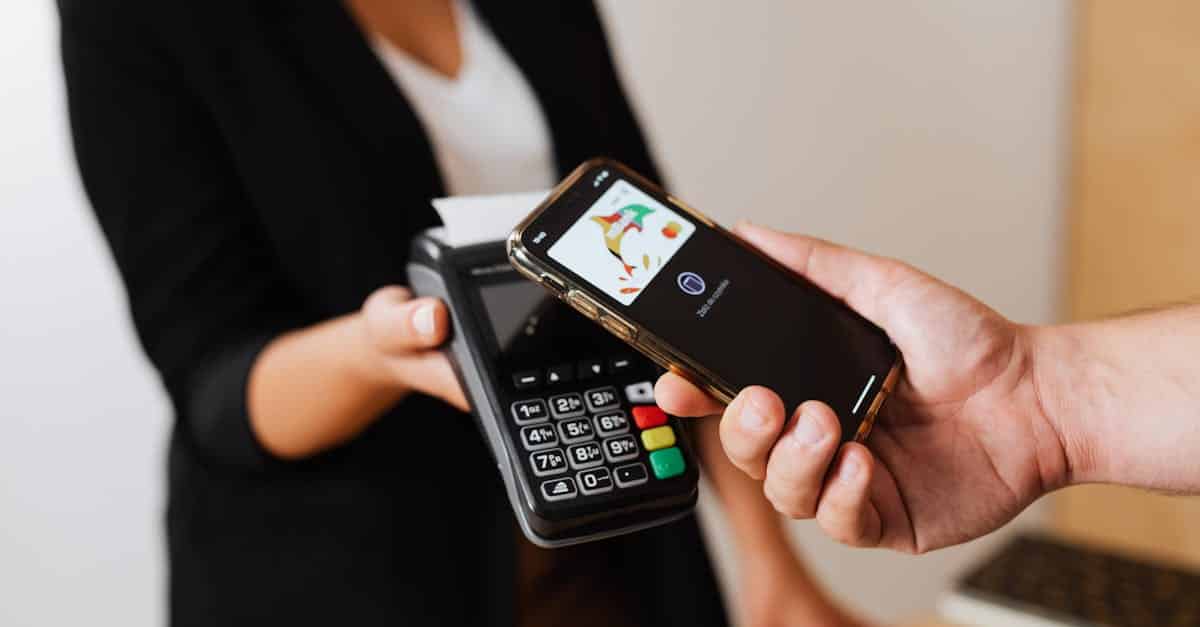With the constant evolution of financial technology, the digital wallet has become an essential tool for simplifying our daily transactions. These applications allow you to make purchases, transfer money, and store loyalty cards right from your smartphone. At the heart of this revolution, platforms like Google Pay and X Money, a recent initiative that could arise from a partnership with Visa, are redefining how we manage money. Whether you are a fan of neobanks or online banks, discover how to make the most of these innovations to optimize your financial management.
The digital wallet is a revolution in the field of personal finance, simplifying daily transactions electronically. This modern system, used by both individuals and businesses, offers a fast and secure money management solution.
Originally known as an electronic wallet, this service allows you to store financial information such as credit and debit cards, as well as loyalty cards, directly on your smartphone or computer. Transactions are made through a secure interface, eliminating the need to carry multiple physical cards.
The technology behind the digital wallet relies on near field communication (NFC) and secure protocol (SSL), ensuring maximum security during contactless payments. This technological advancement has been popularized by giants like Apple Pay, Google Pay, and Samsung Pay.
One of the main features of digital wallets is their convenience. Make your purchases in-store or online with a simple click. No more forgetting cards at home; your payment method is always at hand as long as you have your phone with you.
In addition to fast payments, digital wallets allow money transfers between individuals, thanks to the P2P payment system (peer-to-peer). This system is constantly evolving, with new features and consolidations of major players like X Money, recently introduced by Elon Musk‘s company, aiming to compete with other money transfer applications.
Security is a priority for users of digital wallets. The protection of personal and banking data is ensured through advanced technologies such as biometrics (facial recognition or fingerprint) and strict encryption protocols.
Digital wallets are not limited to traditional payments. They also facilitate the purchase of cryptocurrencies, providing users with diverse access to different types of digital currencies. However, not all digital wallet platforms currently offer these transactions.
In conclusion, digital wallets represent the future of payments. Their ongoing development offers promising prospects for improving and expanding financial management options, further reducing dependence on cash. Be sure to choose a wallet that meets your specific needs, whether it’s using advanced features, sticking to your budget, or ensuring optimal security.
For the more curious, eager to learn about the journey of influential players in the field or to get familiar with understanding digital banking? Explore these philanthropies and the future challenges around fintech by checking out Dan Rosen or the impact of fundraising on the future of these technologies Tabby, which could guide your personal or professional strategic choices. Learn more about digital banking or promising stocks in 2025, such as PayPal or Visa to enrich your portfolio, as well as on the stocks to buy this summer 2024!
Table of Contents
ToggleFAQ about the Digital Wallet
A : A digital wallet is an app or software that allows you to securely store and manage financial information such as credit cards, debit cards, cryptocurrencies, and discount vouchers. It facilitates online payments and contactless payment in physical stores.
A : The main advantages include the convenience of not carrying physical cards, enhanced security through secure authentication methods, and the ability to make instant payments, whether online or in stores.
A : Contactless payment is made via NFC (Near Field Communication) technology integrated into smartphones and payment terminals, allowing for a quick transaction simply by bringing the phone close to the terminal.
A : You can make various payments such as online purchases, in-store payments, bill payments, and even send money to others via peer-to-peer features.
A : Yes, many digital wallets offer support for cryptocurrencies, allowing you to store, send, and receive cryptocurrencies like Bitcoin, Ethereum, and more.
A : Digital wallets are generally available on most modern smartphones, whether they operate under Android or iOS, as long as the device is equipped with the required connectivity.





